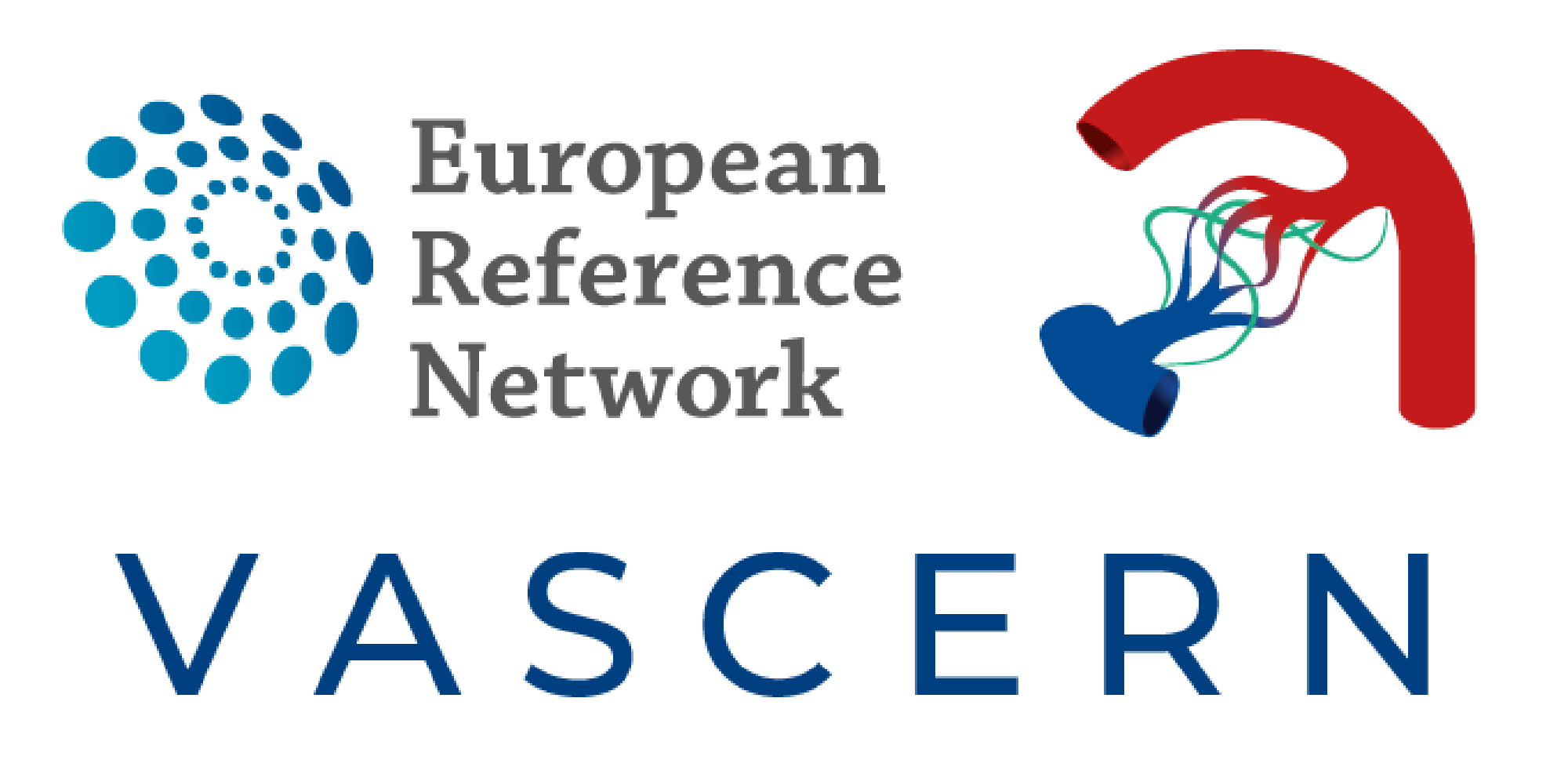About VASCERN
VASCERN, the European Reference Network (ERN) for Rare Multisystemic Vascular Diseases, was established in 2017 to improve the lives of patients across Europe who suffer from rare vascular diseases. The network brings together highly specialized healthcare providers, multidisciplinary teams, patients, and the scientific community to address the challenges associated with these conditions.
Currently, VASCERN gathers 48 expert teams from 39 highly specialized multidisciplinary Healthcare providers (HCPs) plus 6 affiliated partner centers, coming from 19 EU Member States, in this area of expertise. VASCERN is coordinated by Prof. Guillaume Jondeau, Cardiologist and Coordinator of the Center of Reference for Marfan Syndrome and related disorders, AP-HP Hôpital Bichat, Paris, France.
All our HCP Members are Expert Centers recognized in their countries. These HCPs have developed extensive European collaborations through their specific Rare Diseases’ networks. They joined this ERN to foster and reinforce European cooperation in Rare Multisystemic Vascular Diseases, following a common and multidisciplinary approach to patient care to overcome the challenges of rarity.
Learn more about VASCERN through our flyer or watch the video below.
VASCERN’s primary mission is to enhance the diagnosis, treatment, and care of patients with rare vascular diseases through several key objectives:
- Education and Training: VASCERN offers a range of educational activities, including online training modules, webinars, and the VASCERN Summer School under the ERASMUS+ program. These initiatives aim to increase knowledge among clinicians and patients alike.
- Clinical Excellence: By sharing best practices, conducting and participating in clinical trials, and maintaining comprehensive registries, VASCERN works to advance medical knowledge and improve patient care.
- Timely Diagnoses: Reducing the delay in diagnosing rare vascular diseases is a critical goal, achieved through the development of clinical decision support tools and expert consensus statements.
- Awareness and Advocacy: VASCERN actively works to raise awareness about rare vascular diseases among general practitioners, school doctors, policymakers, and the general public.
- Family Support and Counseling: Improving the quality of family counseling and reducing gaps in care are also significant focuses for VASCERN.
VASCERN comprises of six Rare Disease Working Groups (RDWGs) that focus on specific conditions, including:
- Hereditary Hemorrhagic Telangiectasia (HHT)
- Heritable Thoracic Aortic Diseases (HTAD)
- Medium-Sized Arteries (MSA)
- Neurovascular Diseases (NEUROVASC)
- Pediatric and Primary Lymphedema (PPL)
- Vascular Anomalies (VASCA)
These groups are supported by the European Patient Advocacy Group (ePAG), ensuring that patient perspectives are integral to VASCERN’s activities and decision-making processes.
In addition, several Transversal Working Groups are established to better tackle transversal issues on: communication, ethics, patient registry, and pregnancy.
In its five-year evaluation by the European Commission, VASCERN achieved an outstanding success rate of 98%, reflecting its commitment to excellence in patient care, research, education, and governance. The evaluation process involved both self-assessment and external audits, ensuring comprehensive and objective reviews of the network’s performance.
